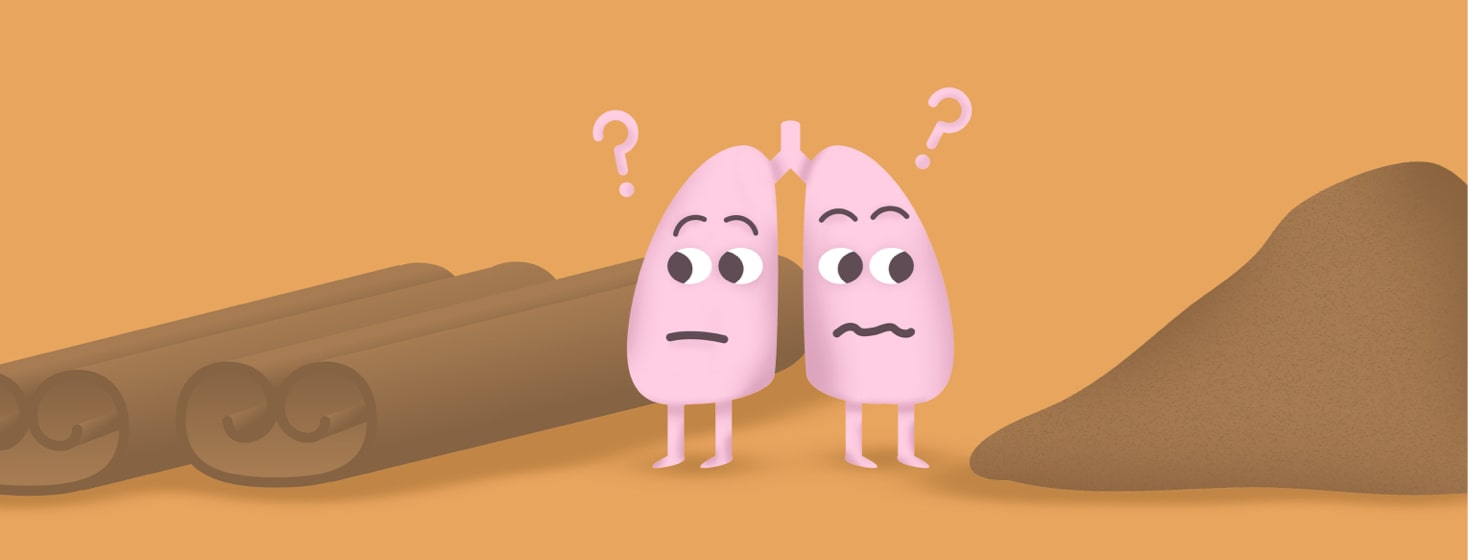Cinnamon and Asthma
Does anyone remember the cinnamon challenge? If you don't, that's probably a good thing! This silly challenge was a social media sensation where people attempted to swallow 1 teaspoon of cinnamon without the help of any liquids. As you can imagine, this would be a very unpleasant experience that would cause a lot of choking, coughing, and tears. For those with asthma, this could potentially be dangerous and lead to an asthma flare-up.
The effects of cinnamon on asthma
Negative effects
Doing the cinnamon challenge would be a poor choice for someone with asthma, but it is also dangerous for those without asthma as well. After doing the cinnamon challenge, 30 people reported that they required immediate medical attention.
The inhalation of the spice can cause pulmonary inflammation and inflammation of the upper airways. Therefore, inhaling large quantities of cinnamon should certainly be avoided for someone with asthma. Besides the cinnamon challenge, someone might also find that a pastry or food coated in cinnamon, or even a beverage with a lot of the spice, could irritate the airways. However, it is important to note that this spice has many benefits and it is not inherently bad.1
Cinnamon and honey
The combination of cinnamon and honey is an ancient remedy, and a quick internet search claims that this combination can help soothe the throat and manage inflammation, as well as improve or prevent arthritis, bladder infections, colds, GI and respiratory issues, longevity, and even hearing loss. As it goes with most quick internet medical searches, most of these claims are not backed up by studies.
However, there are some studies have shown that cinnamon and honey both have anti-inflammatory properties. Aerosolized honey (honey in the form of a spray) was shown to reduce airway inflammation and asthma symptoms in rabbits. One study found that out of 115 that were tested, cinnamon was found to be the most potent anti-inflammatory food. This combination of cinnamon and honey can also work together synergistically to possibly reduce the Streptococcus Mutans bacteria in the mouth, which can cause dental caries.Although this is not directly related to asthma, paying attention and keeping up with your dental health is important if you live with asthma.2,3,4
Cinnamon and oral health
One area where cinnamon may prove to be useful is in the mouth. Several studies have demonstrated the antifungal capabilities of cinnamon, so therefore the spice could potentially be helpful for treating candida. If you use an inhaled corticosteroid to manage your asthma every day, this could put you at risk for thrush, which is caused by the fungus called Candida albicans.5
Thrush can be managed by rinsing and spitting after using your inhaler and using a spacer. There are many brands of toothpaste, mouth wash, and even dental floss that incorporate cinnamon, and due to its antifungal properties, a cinnamon-infused dental hygiene product could be a part of your routine to avoid thrush.
Conclusion
Cinnamon is a common household spice that does wonders in baking, cooking, and in different beverages. This seemingly harmless spice can do damage if inhaled in large quantities, and this should be avoided. Although more studies need to be conducted directly on the relationship between cinnamon and asthma, cinnamon's antifungal properties may be helpful in preventing thrush. The traditional combination of cinnamon and honey may help reduce inflammation, however, many of the claims regarding this combination are not backed up by clinical trials or studies.

Join the conversation